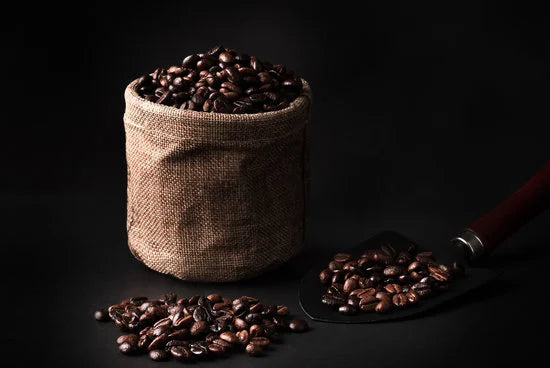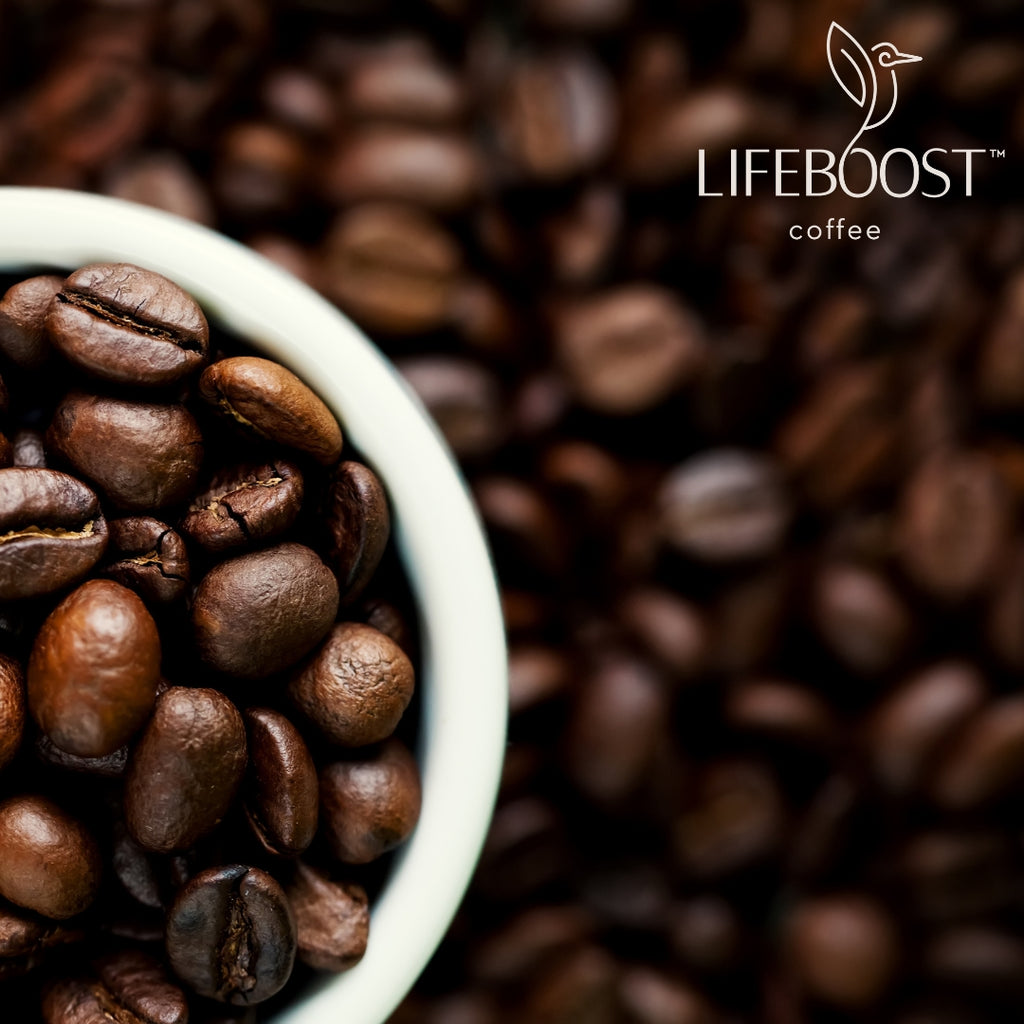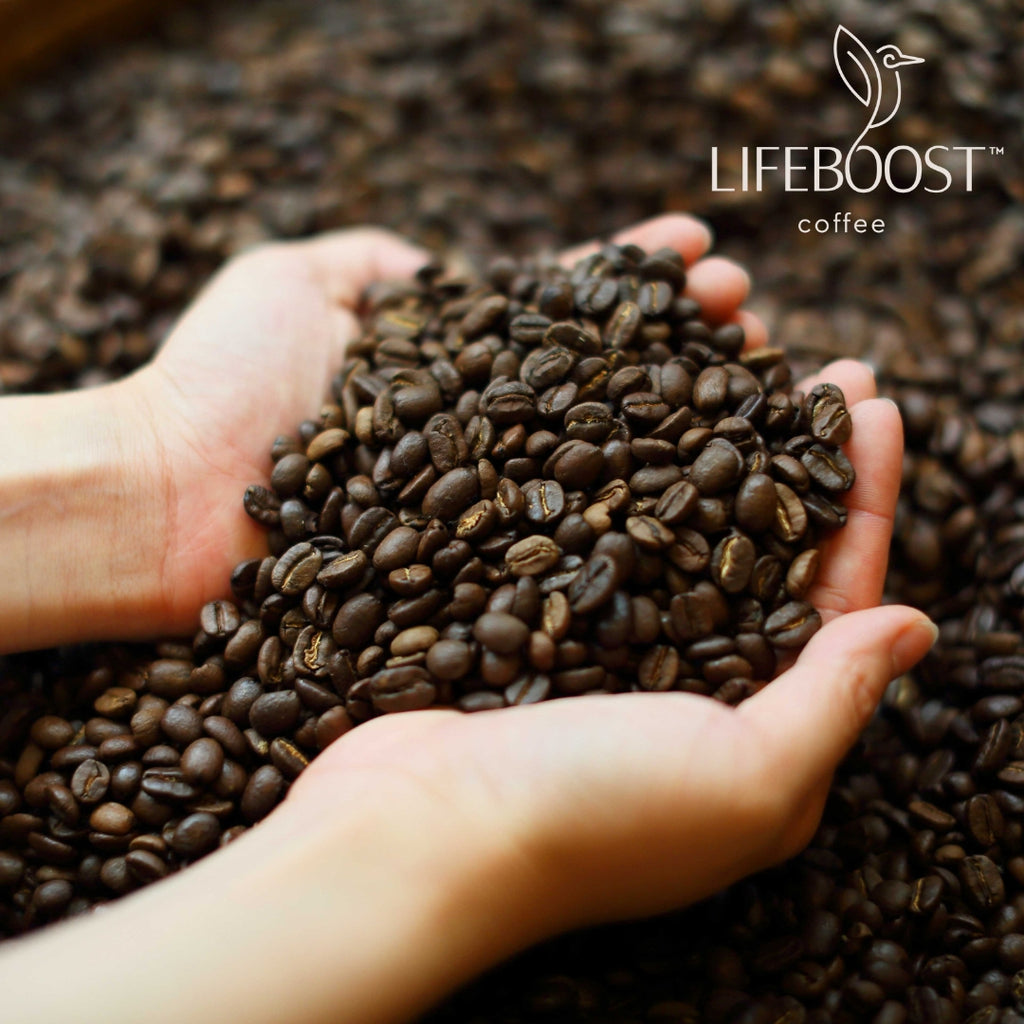
How Long do Coffee Beans Last? Storing Coffee Beans Properly
Coffee is the second most consumed drink worldwide, and if you brew your own, you already know that taste and flavor are essential. Coffee's popularity isn't simply because it boosts your energy and keeps us alert, but we also love waking up to its rich flavors and aromas wafting through our kitchen.
However, there are times when that cup of brew doesn't taste quite as yummy as usual. Perhaps those coffee beans you bought a week ago might already be stale.
Did you know that a lot of the decadent flavor of coffee we crave is dependent on proper storage? Coffee does, in fact, go bad!
But don't worry, if you know how to store your coffee properly, it can last 6-9 months (and Coffee beans last longer compared to ground coffee).
In this article, we will detail out just how long coffee beans remain fresh before they lose their flavor or get stale. We've also listed proper storage tactics to use apart from a coffee bag, so you can stretch that timeframe as long as possible.
In addition to storage, there are a number of factors will determine how long coffee beans remain fresh, such as the type of bean, and whether the beans are whole, roasted, unroasted, or ground. We will cover it all below!
Do Coffee Beans Really go Bad?
Just like any other natural product, coffee beans are natural and have a shelf life. To bring out the delicious flavor we associate with coffee, the beans have to be roasted. Roasting, however, also causes the coffee beans to release compounds and oils that can make them go stale easily.
The purpose of storing coffee beans properly is to avoid oxygen, heat, moisture, and light. These factors cause the beans to lose their flavor, and degrade.
So, yes, coffee beans go bad. Bad coffee has a sour or musty smell, can have a burnt taste, grow various molds, as well as become smaller than its original size.
How Long do Coffee Beans Stay Fresh
How long coffee beans stay fresh is more than just proper storage. It's also about the preparation and packaging used. Storing coffee beans or ground coffee beans in an airtight container or vacuum-sealed bags increases their longevity and can assist in maintaining their freshness after the expiration period.
Some coffee beans just cannot last for long, unfortunately. That's why it's best to replenish your coffee regularly - you never want to start the day off with a bad cup of brew!
There are ways to get around the standard shelf life of fresh coffee. For example, people often choose instant varieties when purchasing raw coffee and instant coffee beans. These instant varieties have a longer shelf life than roasted coffee.
Besides that, pre-ground coffee beans or coffee made by coffee grinders have a shorter storage period than coffee beans.
Coffee grounds have more surface area, and their mid isn't protected; therefore, the natural chemical process responsible for degradation moves the molecules faster.
But, proper coffee storage, such as using sealed containers, vacuum-packed bags, and more, can alter the difference.
On average, coffee beans remain fresh for 1-2 weeks if not stored in an airtight container to conserve their freshness and flavor. That's why most coffee experts advise purchasing roasted beans with a recent roast date. Then, immediately after purchasing your beans, place them in a sealed container.
Closed containers keep freshly roasted coffee beans for months. It's essential to always check on storage guidelines indicated on the packaging and the expiration date to give you an idea of how long the beans will last.

How to Store Your Coffee Beans and Keep Them Fresh for Weeks
Proper coffee storage prolongs the long life of coffee beans or ground coffee. The best storage alternative after purchasing coffee beans is to store them in airtight containers in a dry, cool, or below room temperature.
With proper storing tactics, coffee beans last up to 9 months even though their quality will degrade with time.
To Freeze, or not to Freeze Your Coffee Beans
Many coffee drinkers freeze coffee beans. Though freezing coffee beans is a good alternative, it kills the aroma and flavor of the coffee. Cold air leads to water condensation within the coffee container and coffee beans.
This affects the cell structure of the molecules, thus making the ground or beans lose their flavor and aroma.
It's worse if you regularly move your beans in and out of the refrigerator, as temperature changes make the coffee go bad. Therefore, before you store your coffee beans in the fridge, consider the facts above, as we do not recommend freezing ground or coffee beans.
But, if you prefer freezing coffee, ensure you have a nitrogen-sealed bag or airtight container to maintain the taste of your coffee.
Processing and Packaging of Coffee Beans
Most processes that companies use in processing and packaging coffee beans can significantly affect coffee. Here are the common processes used:
Vacuum Sealing
This is one of the most common packaging methods used. Coffee beans are simply placed inside a vacuum-sealed container, serving the same purpose as storage in an airtight container.
The difference is that the gasses inside are sucked out, leaving no oxygen behind, unlike airtight containers with a small amount of oxygen. In this process, coffee beans are left out 1-2 days to off-gas before packaging, thus avoiding bursting of the packaging container.
However, once the package is opened, coffee beans start to stale because of oxidation. To avoid such cases, store the beans in an airtight container once the box is opened.
Nitrogen Flushing
The nitrogen flushing process entails packaging freshly roasted beans and the gasses flushed out of the package with nitrogen to avoid the coffee beans decaying.
After the roasting process, coffee beans off-gas carbon dioxide. The packages contain a one-way valve to allow the escape of carbon dioxide without oxygen making its way back to the packaging bag. It's one of the best processes, as coffee beans can remain fresh for 6+ months before opening.
Hand Packaging
This is one of the risky methods that most companies do not apply. Companies that use this method typically have fewer beans in store and a quick packaging process than industrial machinery. That's because if the coffee is waiting in stores for packaging, it gets exposed to oxygen, thus degrading its quality.

Types of Coffee Beans and their Shelf Life Compared
Light or Dark Roasted Coffee Beans
As its name suggests, light roast beans are lightly roasted, while dark roasts are coffee beans roasted for longer. The roasting process affects the longevity of coffee.
Darker roasts are exposed to high temperatures and longer periods, leaving molecules and natural oils behind. This means the chances of the beans going stale is quicker. Conversely, light roasts have molecules to degrade, meaning it will take time before the coffee beans go stale.
Whole Beans vs. Ground Coffee
Ground coffee is the most common in coffee shops. However, even though most people prefer ground coffee for its convenience, some coffee lovers love whole beans to ensure a fresher taste.
We recommend grinding whole fresh beans a few minutes before brewing for fresh flavor and aroma.
Keep in mind though, while ground coffee is convenient, whole coffee beans last up to 9-months. As aforementioned, how long your coffee beans remain fresh does depends on the storage method used though.
How Long do Roasted Coffee Beans Last?
The longevity of roasted coffee beans depends on the type of storage used. Most coffee shops seal their bags with nitrogen to prevent oxidation from taking place. If the nitrogen-sealed bag is unopened, the beans will remain fresh for almost a year since their roast date.
Once the bag is opened, the coffee flavor starts to fade. This happens approximately three weeks after opening the bag. To minimize the effects, you can properly store them in an airtight container maintained below room temperature.
If you can't keep up with that storage process, consider fresh coffee bags consumable in weeks rather than buying in bulk and then losing taste.

How Long do Green Coffee Beans Last?
There is a lot of online debate about how long green coffee beans last. Some claim that green coffee beans last for almost two years if stored in burlap bags. Others say it only takes one year as the maximum storage period (six months in the roaster and 6-months with customers).
But, the truth is green beans last a good amount of time with proper storage. No roaster will sell you old coffee beans. For home roasters, coffee beans sold in local roasters or shops are fresh; therefore, you will have much a decent amount of time to go through them.
Bags of coffee from local roasters have roasting dates. Checking roasting dates is vital, especially if you want to maintain its taste.
How Long Does Ground Coffee Last?
Nothing beats morning coffee with good taste. For a great taste, then you must find the best tasting coffee and invest in the best coffee grinder, such as a dual coffee maker, burr grinder, and fresh beans.
Ground coffee stays fresh for 1-2 weeks if stored in airtight containers and below room temperature. If you succeed in maintaining its freshness, you will enjoy drinking coffee fresh.
Burr grinders are best for consistent grinding, thus tasty brewed coffee. Besides, fresh ground coffee has a tastier flavor than pre-ground coffee. After grinding coffee, oxidation starts to take place, and as earlier mentioned, ground coffee oxidizes faster than whole beans.
Ground coffee has more surface area, thus exposing the beans to heat, light, and moisture. Therefore, ground coffee easily loses coffee faster than whole beans. That's why people are advised to opt for whole beans.
How do You Know if Coffee Beans are Still Good? 7 Ways to Know
If you drink coffee regularly, then you know not all coffee is equal. From farming, processing, roasting, and variety produce, all these factors vary. So, if you buy coffee beans from a local coffee shop, roaster, or grocery store, here is what to look out for:
1- Color
The color of beans is an essential consideration. In fact, it should be your first approach. A dark brown color is a good indication. Fresh coffee beans should be smooth and shiny on their surface.
Some sellers have old coffee beans. The only way to identify is through color variation. If the beans are discolored and seem dull, then the beans are good.
2- Smell
If distinguishing color was problematic, smell the coffee beans. A musty or sour smell indicates that they are not fresh coffee.
3- Taste
This also works best. A burnt flat taste indicates the beans are no longer fresh.
4- Check the roast date
Always check the date on the packaging container or bag. Typically, the shelf life of coffee is two weeks. So if the indicated period is longer than the shelf life, there is a good chance the beans are not fresh enough to brew coffee.
5- Check the size of the coffee beans
If you have bought coffee beans before, you know the appropriate size. If the coffee beans are smaller, they are not as fresh as before.
6- Look for mold
Some old coffee beans have visible molds. Meaning it will be easier to identify if the beans are fresh. Remember, contaminated food is risky to your body. The same theory applies to coffee beans with mold.
7- Check the roasting date
This is a vital factor in determining freshness. Ideally, you need to purchase beans roasted at least 2-3 weeks ago to avoid stale coffee beans.

How to Make Your Coffee Beans Last Longer
Proper storage is essential for the longevity of coffee beans. Vacuum-sealed bags, coffee bags, airtight containers, and freezing could help in bean storage. There are also other ways to increase the beans' longevity and maintain the beans' flavor; these include:
Use within 2 weeks
Use coffee beans within two weeks of roasting. After this period, the beans begin to lose their flavor, which doesn't work for many coffee lovers.
Buy in small quantities
Buying coffee in small batches gives you enough time to consume freshly roasted beans. Besides, it's an excellent way to avoid expired beans. To enjoy coffee's great flavor and aroma, it's better to purchase the beans frequently but in smaller quantities to brew coffee.
Grind the beans before brewing
Grinding coffee beans before brewing helps maintain the flavor of the coffee. If grounded earlier, it may start to lose its flavor and aroma as oxidation occurs. This is a good idea, especially if you brew coffee by yourself.
If you can't grind, vacuum-sealed coffee bags or airtight containers can assist in storage.
Frequently Asked Questions
How do you know when coffee beans go bad?
Smell them. If your coffee beans smell or look a little bit off (mildew, moldy, or rancid), it might be time to throw them. Taste is an essential aspect of coffee flavor and aroma. So, if the coffee beans are dull and lifeless with a musty aroma, the brewed coffee will taste that way.
Do coffee beans actually expire?
If stored properly, coffee beans last up to 9 months even though their quality will degrade with time. However, properly storing coffee beans in airtight containers increases their longevity by some months.
How long do opened coffee beans last?
Generally, if stored in vacuum-sealed bags, roasted beans last around 6-9 months past shelf life. If the coffee beans are opened, they should be consumed within 6 months. Store coffee beans in a vacuum-sealed or airtight container to boost longevity.
Do ground coffee beans expire?
Yes. Ground coffee beans do expire if exposed to air. Air speeds up oxidation; therefore, ground beans may expire within 3-4 months. If unopened, ground coffee beans last approximately five months. It's advisable to keep opened ground coffee beans in an airtight container.
Are old coffee beans safe?
Yes. Old coffee beans are safe for consumption. However, they won't taste like fresh beans. The beans will have a rotten aroma and can make you sick.

Bottom Line
Proper coffee storage is the secret to keeping your beans fresh and golden. Any environmental factors are a threat to coffee's compounds as they quickly react to oxygen.
We encourage you to buy whole beans in small quantities. Whether you choose whole roasted coffee beans, unroasted coffee beans, green beans, or coffee grounds, ensure you strictly focus on its storage for a great taste of your hot or cold brew coffee.
Maintain your coffee's flavor by storing coffee beans in sealed coffee bags, airtight containers and freezing.
Lastly, check the roast date! At Lifeboost, we wait to roast our coffee beans until you order - giving you the freshest possible bags at your doorstep.
Check out Lifeboost Coffee Grata Medium Roast.
Drop a Comment
What about coffee pods? There was no mention of that. I have been using your pods for years!
Wonderful coffee and so smooth and easy on my sensitive stomach 👍









